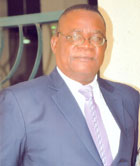Journal of International Relations and Foreign Policy, 1(1), pp. 32-40.
Abstract
During the apartheid era, Nigeria amongst other independent African states fought for the liberation of their black brothers and sisters in South Africa. Nigeria had no bilateral relations with the government of South Africa, as the country was a pariah state in the international community because of her apartheid posture. At the dawn of democracy in South Africa and Nigeria, there was a dramatic change in attitude. Both countries became two African giants that will champion the repositioning of Africa on the path of long term development and reduce her marginalization in the international economic relations. Today, they are regarded as emerging giants in the African continent. Nigeria enjoys economic dominance in the western part of Africa while South Africa enjoys economic dominance in the southern part of Africa. While Nigeria’s economy depends heavily on the oil sector, which contributes 95 percent of her export revenue, South African economy is a diversified one, which includes manufacturing, financial and minerals, among others. This papers aims at focusing on various bilateral relations that exist between both nations; their roles in the establishment of NEPAD whose main objective is to eradicate poverty in Africa and to place African countries on the path of sustainable growth and development; the establishment of South Africa- Nigeria Bilateral Commission which aims at increasing the amount of trade and investments between South Africa and Nigeria.The paper will also look at how the presence of many South African companies doing business in Nigeria has unproved trade relations between Nigeria and South Africa.
Full Text: PDF
Ebegbulem, C. Joseph. (2013). An Evaluation of Nigeria – South Africa Bilateral Relations. Journal of International Relations and Foreign Policy, 1(1), pp. 32-40.
Adams, A. J. (2006) "Rethinking Africa's Development through the New Partnership for Africa's Development (NEPAD): The Challenges and way forward". Calabar Journal of Politics and Administration Vol. 3, No. 1
Adekunle, A. (1986) “Nigeria and Southern Africa” in Olusanya G. O. and Akindele, R. A. (eds) Nigeria’s External Relations; The First Twenty-Five Years. Ibadan: University Press Ltd.
Adel, E. and Chibuike, U. (2005) “South Africa, NEPAD and the African Renaissance," ASC Working Paper 64, University of Nigeria
Alade, C. A. (1997) Theory, Concept and Principles in the Study of International Relations. Lagos: Elmi Educational Ltd., 1997
Ebegbulem, J. et al., (2012) “The Challenges of Integrating Africa into the Globalised World through New Partnership for Africa’s Development (NEPAD)” International Journal of Humanities and Social Sciences, Vol. 2, No. 6, March 2012
Lutchman, J. and John, D. (2004) “South Africa and Nigeria: Two Unequal Centres at the Periphery” in the State of the Nation: South Africa
Omojola, B. "The Sky is the Limit," Africa Today, 30 September, 2006
Omoweh, D. A. (2003) “The New Partnership for Africa’s Development (NEPAD): Another False Start?” The Nigerian Social Scientist, Vol. 6, No. 1, March, 2003
Pahad, A. (2002) "Briefing on the Incoming State Visit," Union Building, 5 May 2002.
Saul, D (2000) The African National Congress. Johannesburg: Jonathan Ball Publishers, 2000
Sifingo, B. (2003) "South African High Commissioner to Nigeria comments on Business Relations," African Business Journal Issue 13, February - May South Africa – Nigeria Chamber of Commerce (www.sa-ncc.co.za)
Ude, U. (2008) Nigeria’s Father-figure Role in Africa: The OAU-AU Example. Abakaliki: Smile Printing Printing

JOSEPH C. EBEGBULEM, a Nigerian born on the 23rd of July, 1959. He has a Bachelors degree in political science (BA magna cum laude) from Alabama State University, USA, and Masters degree (MA) in International Relations from the City College of the City University of New York, USA. He taught briefly at St. Catherine School in New York before returning to Nigeria. He am about rounding up a PhD program in International Relations. Currently, he is a lecturer in the Dept. of political science, University of Calabar, Nigeria. He is married with four children.
Contact no.: 234 803 3347 0606.
Browse Journals
Journal Policies
Information
Useful Links
- Call for Papers
- Submit Your Paper
- Publish in Your Native Language
- Subscribe the Journal
- Frequently Asked Questions
- Contact the Executive Editor
- Recommend this Journal to Librarian
- View the Current Issue
- View the Previous Issues
- Recommend this Journal to Friends
- Recommend a Special Issue
- Comment on the Journal
- Publish the Conference Proceedings
Latest Activities
Resources
Visiting Status
| 475 | |
| |
353 |
| |
3428 |
| |
9348 |
| 1118496 | |
| 3 |
 The Brooklyn Research and Publishing Institute
The Brooklyn Research and Publishing Institute